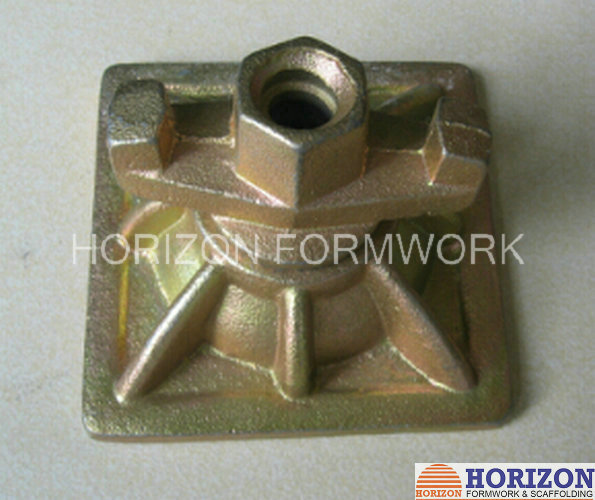Oct . 09, 2024 16:21 Back to list
formwork t support for beam supplier
Formwork Support for Beams A Comprehensive Guide
Formwork is an essential aspect of construction that refers to the temporary or permanent molds used to shape concrete into desired structural forms. It plays a crucial role in ensuring the structure's integrity and overall aesthetics. Among various types of formwork, beam formwork is particularly significant, as beams are fundamental components in any building's framework. This article will explore the importance of formwork support for beams, the types of materials used, and considerations for choosing the right supplier.
Understanding Beam Formwork
Beams are horizontal structural elements that support loads from above and transfer them to vertical supports such as columns or walls. The formwork used for beams must be robust enough to withstand the weight of the wet concrete, plus any additional loads during the pouring, curing, and final lifting processes. Proper formwork support is vital, as any failure can lead to catastrophic structural failure, impacting both safety and costs.
Key Functions of Beam Formwork
1. Shaping the Concrete The primary function of formwork is to mold the wet concrete into the desired shape and size. 2. Supporting Weight The formwork needs to be strong enough to hold the weight of the wet concrete and any construction workers working on it. 3. Ensuring Surface Finish Quality formwork will help achieve a smooth finish on the concrete, reducing the need for extensive finishing work later. 4. Facilitating Curing Well-designed formwork can aid in the curing process by providing necessary protection from environmental factors like wind and rain.
Types of Formwork Materials
Beam formwork can be constructed from various materials, each with its own advantages and suitability for different types of projects.
1. Timber Formwork Traditional and widely used, wooden formwork is easy to work with and can be reused multiple times. However, it requires proper treatment to prevent moisture damage and warping.
2. Steel Formwork Known for its durability and reusability, steel formwork is ideal for large-scale projects. It provides a high level of precision and can handle significant loads, but it is also heavier and, therefore, may require more labor to install.
3. Aluminum Formwork Lightweight yet strong, aluminum formwork is gaining popularity for its ease of handling. It allows for speedy installation and is often used in projects that require rapid construction. Like steel, aluminum is also highly reusable.
formwork t support for beam supplier

4. Plastic Formwork An innovative option, plastic formwork is lightweight and resistant to corrosion. It is often used for smaller projects or specific applications where traditional materials might not be viable.
Choosing the Right Supplier
When selecting a supplier for beam formwork, several factors should be considered to ensure the best outcome for your project
1. Experience and Reputation Look for suppliers with a proven track record in the industry. Experience can often translate into better material quality and service.
2. Quality of Materials The quality of the formwork materials is paramount. Ensure that the supplier provides compliant products that meet industry standards.
3. Customization Options Depending on the specific needs of the project, you may require custom formwork solutions. A supplier that offers design flexibility can be beneficial.
4. Technical Support Having access to technical expertise during the installation phase can help mitigate potential issues down the line. A reputable supplier will often provide guidance and support throughout the project.
5. Cost-Effectiveness While quality is essential, staying within budget is also crucial. Compare prices from different suppliers but ensure you do not compromise on quality for lower costs.
6. Sustainability Practices In today’s eco-conscious environment, consider suppliers that use sustainable materials and practices. This not only reduces the environmental impact but can also enhance your project's image.
Conclusion
Formwork support for beams is a critical component in the construction process. Understanding the types of formwork materials available and selecting the right supplier can significantly affect the efficiency, safety, and quality of your construction project. By considering the above factors, you can ensure that your beam formwork will meet both structural demands and aesthetic desires, ultimately contributing to the success of your building project.
-
High-Quality U Head Jack Scaffolding – Reliable Scaffolding Jack Head Manufacturer & Factory
NewsJul.08,2025
-
High-Quality I Beam H20 Leading Timber Beam H20 Material Factory, Exporters & Manufacturers
NewsJul.08,2025
-
High-Quality Powder Coating Steel Formwork - Durable & Corrosion Resistant Solutions
NewsJul.07,2025
-
Inclined Column Formwork Supplier – Durable & Precise Solutions for Unique Structures
NewsJul.07,2025
-
High-Quality Water Stop Solutions Trusted Water Stop Company & Suppliers
NewsJul.07,2025
-
High-Quality Formwork Material Supplier Reliable Manufacturer & Factory Solutions
NewsJul.06,2025